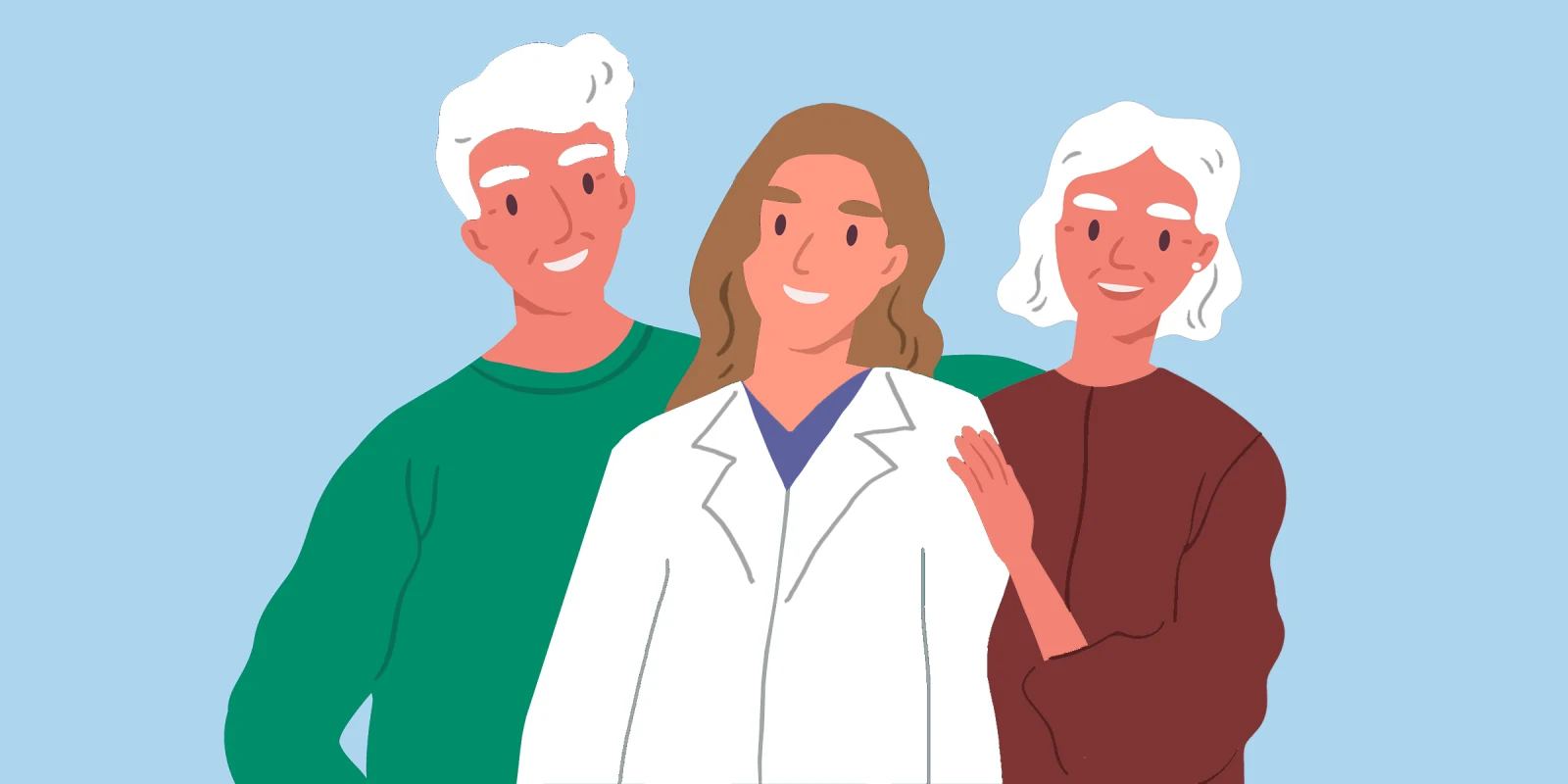Two really common clinical scenarios. First: male, late 60s, painless hematuria, referred to urology. Cystoscopy reveals lesion on bladder wall; stage I bladder cancer. Second: female, 70, unwitnessed fall, no prodromal symptoms. ED visit two days later, incidental finding of two cerebral aneurysms but otherwise normal workup, working diagnosis: syncope.
Now, imagine you have to answer specific questions about these clinical presentations — what led to them, what the prognosis may be, what the likely treatment and/or further workup may be — and do it all with no further information. And from 1,000 miles away. Over the phone.
If you can imagine that, then you just might be The Clinician In The Family.
My parents are currently in the middle of two concurrent health episodes, as described above. I am The Clinician In The Family, and it’s a funny spot to be in. On the one hand, when I hear these reports from them, I have so many questions that I want to ask, but the answers that they give are inherently compromised. They are not objective clinicians, they are subjective patients going through health events. They’re stressed about this huge unknown, so their recall is going to be biased. They haven’t been trained to know which pieces of information are relevant and which pieces I don’t really need to know. And in the middle of a health episode, they’re not at the top of their game.
Well-meaning relatives turn to Google, which never seems to clarify anything. In a worst case scenario, these well-meaning folks will just regurgitate what they saw on the internet somewhere, with no consideration for: 1) whether they understand what they are talking about, 2) whether it is relevant to the matter at hand, or 3) how much this might spook the listener.
If only there was … A Clinician In The Family.
Thankfully, both of my parents have granted me official access to their EMRs and I can review all their notes, labs, imaging, and pathology results as I would for any other patient. That’s great for answering my questions, but it creates more murkiness with regard to how to proceed with the information that I get. If they were my patient, I would want to give them information in simple and direct terms so that they could make the decisions about how to proceed that are right for them. As a clinician, that is my responsibility.
As The Clinician In The Family, I voraciously read these charts and decide what exactly to share with my parents, and pitch them some suggested questions for their clinicians. Is it appropriate for me to be the one to discuss the relevance of high grade lesions? Of course not; that should be the urologist. I can make sure that the question gets asked and answered — that feels like the right balance as the daughter and The Clinician In The Family.
When I became a clinician, I anticipated the challenge of sharing some of the best days and worst days with patients. I took steps to prepare myself for that. When I became The Clinician In The Family, I anticipated explaining different disease processes and treatment options to my loved ones, but did not anticipate being a medical information gatekeeper. Yes, my parents have the same access to their charts that they have given me, but their understanding is much different. They turn to me with questions: What does this mean? Why do I have to have this test or procedure done? Why didn’t my PCP do X, Y, or Z? I answer them objectively, as I would for any patient that I have never treated, and advise them about how to ask their doctors or specialists for more details. I look for red flags, but don’t tell them when I find them; instead I tell them when I think they need to be seen, or need to reach out to their clinicians. I ask questions that are indirect: Are you, in fact, getting adequate hydration? Oh, who told you that? You should be seen as soon as possible for that. No, sending a message through the portal is not as good as being seen.
It’s my privilege to be The Clinician In The Family. It’s also a slippery slope. I would never treat my parents as patients, but I watch their health much as I do with patients I do treat. The difference is that almost the entire equation lives in my head, unless there is a red flag or something that simply can not wait. (Spoiler: That’s still no guarantee that they’ll go to the ED when I strongly suggest they do.) Sometimes, I feel like I am advocating for their actual clinicians as much as I am advocating for them; I like to think that I have averted a lot of unnecessary patient portal messages by encouraging them to be seen. But an important question remains: When do I get to take off the badge of The Clinician In The Family and simply be The Daughter?
Share your experience as The Clinician In The Family in the comments.
Jessica Reeves is a nurse practitioner as interested in the well-being of her fellow clinicians as that of her patients — and she's on a mission to make the work world a better place to live. She writes, works, and lives in the town that holds the world record for most lit jack-o-lanterns (really). Follow her at jessicareeves.net. Jessica is a 2023–2024 Doximity Op-Med Fellow.
Image by GoodStudio / Shutterstock







